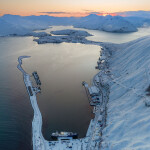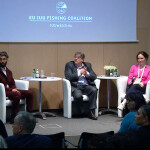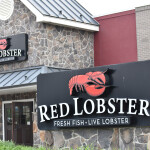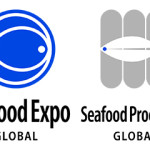Atlantic salmon farming firm Hiddenfjord, based in the Faroe Islands, has reduced its level of carbon dioxide emissions attributed to exporting its fish by 94 percent by discontinuing its use of air freight.
Hiddenfjord suspended its air freight operations on 10 October 2020 and moved to using lower-emission sea freight instead to transport its salmon to markets in China and the United States.
The decision follows publication of a report by SINTEF, one of Europe’s largest independent research institutes, into the greenhouse gas emissions of Norwegian seafood products.
The report shows that air freight is a major contributor to global CO2 emissions, emitting around 50 times as much CO2 as sea freight. The report recommends the industry find alternative methods of transport that result in lower greenhouse gas emissions.
Other recommendations include improving feed efficiency, changing the composition of feed, maximizing use of by-products along the entire seafood supply chain, avoiding unnecessary transport for processing and transport of byproducts, increasing energy efficiency, and changing to renewable energy carriers.
Hiddenfjord’s commitment is in line with Goal 13 of the United Nation’s’ Global Goals for Sustainable Development, which urges countries, companies and individuals to take urgent action to combat climate change and its impacts.
“The facts are clear; we all need to immediately stop using airplanes to transport goods in order to reduce climate change,” Hiddenfjord Owner and Managing Director Atli Gregersen said.
Gregersen said even after years of systematically reducing the use of air freight, the decision was a challenging one for the company, and was made at a board meeting in December 2019. The risks the company faced by making the switch were lower prices for a frozen product, and reduced flexibility in reaching distant markets. Ethically, however, it was deemed to be “absolutely the right decision.”
“If we claim that we want to be a truly sustainable company, we must take responsible actions,” Gregersen said.
Consumer research undertaken in advance of the switch eased any fears that Hiddenfjord had about the quality of its GlobalG.A.P-certified salmon, which was shown to have maintained the same high standards when traveling by sea.
“This has been a big change for many of our customers, so we were happy to be able to prove that we could maintain our quality standards while making the salmon more attractive now it has a much lower CO2 footprint,” Hiddenfjord Sales Director Óli Hansen said. “We see good growth in sales figures, and the product is attracting interest from new customers focusing on sustainability.”
Photo courtesy of Suksin/Shutterstock







